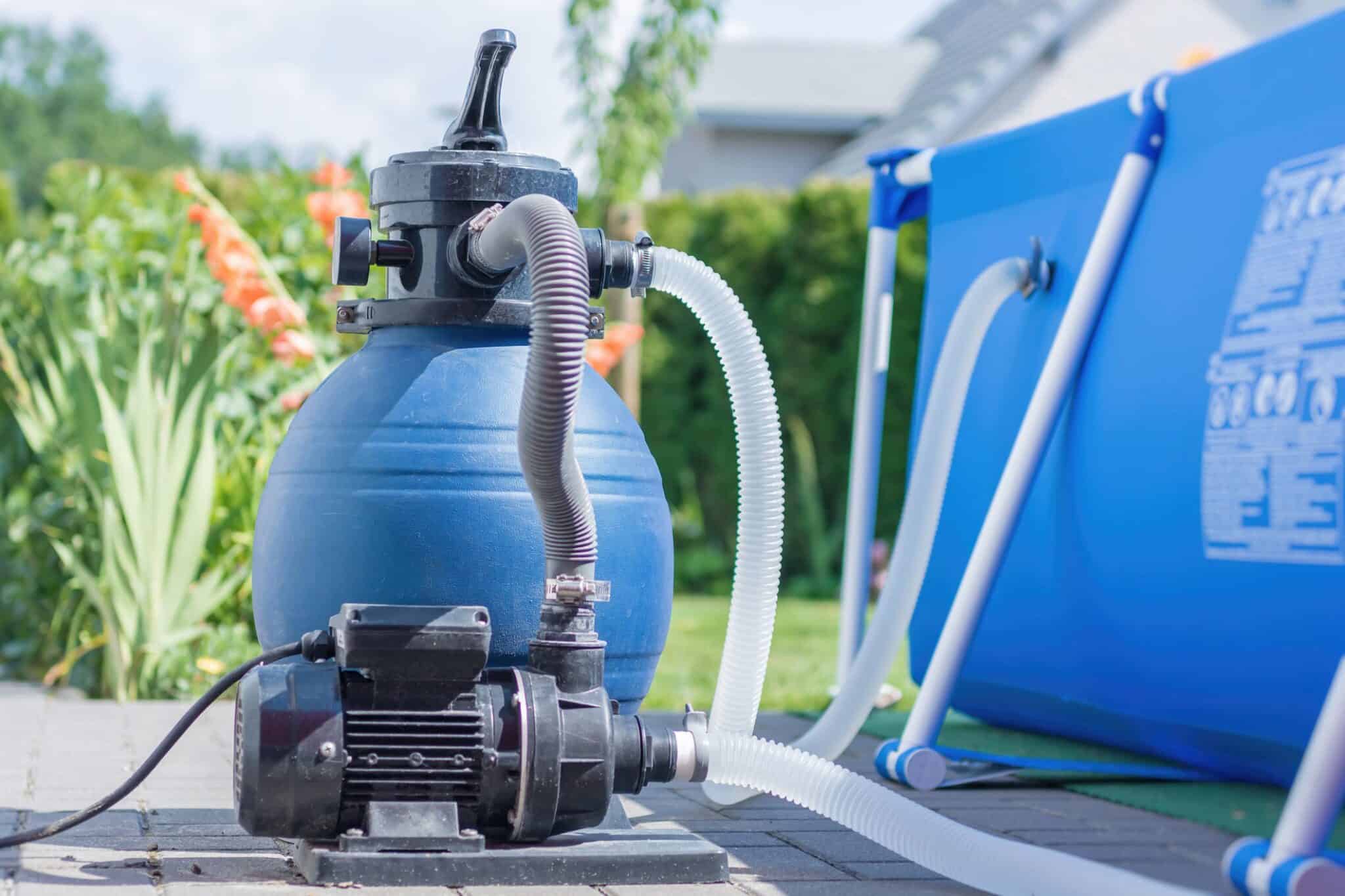Congratulations on finally saving up enough to get your own in-ground pool! But having it built is only the beginning. After the contractors leave your property, it's up to you to shop for the necessary pool supplies and use them properly.
I don't want to frighten you, but owning a pool is a huge commitment. To protect your investment and ensure it provides years of fun for you and your family, you need to have all the right swimming pool supplies to help with its upkeep.
But what do you need to begin with? Although maintaining a pool is not difficult, it does demand dedication. It is considerably more challenging to restore your pool to health than it is to keep it there. That said, here is a list of the swimming pool supplies you'll need to get started on the right track.
1. Pool Pump

Let's start with the most important pool supply: the pump. In order for the water to be clean and fresh, it needs to circulate. And the circulatory system of your pool is powered by the pump. This piece of pool equipment draws the water and pushes it into other pieces of equipment, where it is heated, treated, and filtered, keeping it clean and at a comfortable temperature.
There are two types of pumps: single-speed and variable-speed pumps. Those with a single speed operate at just that—a single speed. Variable-speed pumps, you guessed it, allow the operator to change the speed at which the water flows through the system.
The variable-speed option is a game-changer since it allows pumps to operate at various rates. The owner can run their pump for longer periods of time at slower speeds without incurring additional fees or energy consumption.
2. Pool Filter

If the pump is the heart of the pool, then the filter is its kidney. All sorts of debris and bacteria can accumulate in the water and negatively affect your health. The filter removes these contaminants.
Though price is certainly something to think about, ultimately, you want to invest in a quality filter that will capture impurities, is simple to clean and maintain, and can endure more than a single pool season. That said, these pool supplies are available in three types: cartridge, sand, and diatomaceous earth.
a) Sand Filters
Sand filters have the lowest prices and, as such, are perfect if you're on a budget and don't use your pool year-round, so they don't require much maintenance. These pool supplies are also a good choice for larger pools since they don't clog easily.
b) Cartridge Filters
While some swimming pool owners may prefer using easily affordable cartridge pool filters, others may benefit from using a cartridge pool filter given that it is slightly expensive in the end. It does not take a lot of energy and will not make a huge difference in your electricity bills. Furthermore, it is also accessible to wash and maintain implying that it is also a long-term investment. These types of filters are effective when operating with variable-speed pumps, as the name suggests.
c) Diatomaceous Earth Filters
A diatomaceous earth filter costs the most, but it's well worth it since it's able to clean out microscopic particles as small as 5 microns. To save up, you can consider shopping around major holidays or during the cold season when there are discounts on pool supplies.
3. Pool Heater

A pool combined with suitable swimming pool equipment is a significant investment. So, why not make sure you can enjoy your swimming pool whenever you want, not just when the weather is good?
If you want to enjoy an extended swimming season, you will need a good pool heater that will warm up the water to comfortable temperatures. There are three options you can choose from:
- Solar-powered pool heaters
- Gas-powered pool heaters
- Pool heat pumps
A pool heat pump can be a wonderful solution if cost-effective performance is your top priority. This piece of equipment provides affordable monthly heating and operates all year long (down to temperatures of -1 degrees Celsius), rain or shine.
4. Pool Lights

Many pool owners love nighttime swimming. A well-lit pool also creates a lovely ambience during parties or other late-night events, in addition to nighttime swimming. That said, lighting your pool is essential for improving both its appearance and safety.
Swimming pool lighting must be chemically resistant and submersible. This type of pool supply is available as fibre optic strips and flush-mount LED lights.
5. Pool maintenance equipment
a) Vacuum

Your pool's regular maintenance schedule will require a good vacuum. The vacuum head can make it simple to reach into the corners of all kinds of swimming pools. This pool supply works well for both general cleaning and spot cleaning.
However, you might need to purchase the hose separately because most vacuum heads come without a hose or pole. In most cases, you can just use the vacuum and a skimmer pole.
b) Skimmer

Another thing is that this is quite a useful supply when it comes to the maintenance of the pool. Before you jump, it will be useful to get rid of leaves, flowers, petals, and insects with the help of the skimmer. With your skimmer, you can also opt to scoop toys that you may have dropped or, in some cases, forgot to remove from the water.
c) Wall Brush
If you experience an accumulation of algae, a wall brush is one of the best pool cleaners. The best way to remove algae is to treat them with algaecide, then scrape them off the pool's sides and vacuum them away immediately.
There are brushes specifically for pools made of concrete, gunite, and plaster, as well as brushes for those with vinyl lining. Some brushes also come with a magnetic edge, making them useful for finding lost jewelry.
6. Treatments
a) Chemicals

All of the aforementioned pool equipment keeps the water physically clean and free of debris like leaves, dirt, and insects, but chemicals also ensure it's free from bacteria. The chemicals needed to provide a germ-free swimming environment are:
- Sanitisers like chlorine and shock;
- Alkalinity increasers and decreases;
- pH increasers and decreases;
- Enzymes;
- Algaecides.
b) Ionizers

At times, the chemicals alone do not work well, and this is when the ionizers serve their purpose effectively. ionizers emit copper and silver ions within the water, which provides pathogen fighting capability as well as prevents algae formation.
c) Water Test

Regularly testing the water is an important part of keeping the pool clean. Experts recommend doing so at least once a week. Test strips are the most convenient way to check the levels of disinfecting chemicals in the water as well as alkalinity, pH, and total hardness.
Final Take
Keeping your pool clean, safe, and enjoyable is easy when you have the right supplies on hand. From cleaning tools and water testing kits to essential safety gear, these items ensure your pool is always ready for a refreshing dip. Investing in quality supplies not only saves you time and effort but also extends the life of your pool. With the right tools and a bit of routine maintenance, you can enjoy a sparkling, hassle-free swimming experience all season long.














